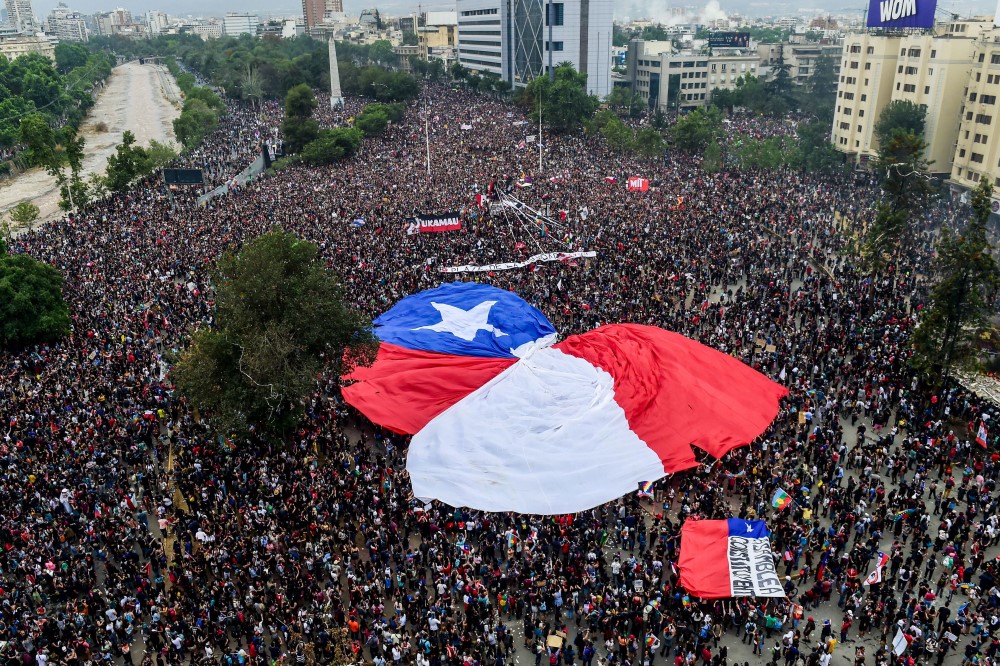BY OLIVER STUENKEL | DECEMBER 13, 2019
Chile’s challenges are more than skin deep. As things stand, the political establishment will be hard-pressed to face them.
https://www.americasquarterly.org/content/chile-protests-brazil-2013
During a recent visit to Santiago, as massive street protests in the city entered their third month, most of the journalists, activists, academics and politicians I spoke to conceded that Chile was in far deeper trouble than many observers abroad seemed to realize.
The demonstrations and resulting government crackdown that made global headlines in October have largely fallen off the international radar, as Latin America watchers have moved on to social unrest in Colombia, the new government in Argentina and the recently finalized U.S.-Mexico-Canada Agreement (USMCA). Rather than a lack of interest – as has been the case with other crises in the region, such as in Haiti – the diminishing attention on Chile has been a matter of benign neglect, the product of a broad consensus that the country is well-positioned to overcome its current challenges.
For a long time, many Chile shared this view. A former policymaker I spoke to admitted that flattering articles in publications such as The Economist had contributed to overconfidence among Chilean elites, making them less receptive to the frustration and rage that was slowly accumulating on the streets. On Oct. 17, in a now infamous interview with The Financial Times, President Sebastián Piñera proudly described Chile as an “oasis” in the midst of political upheaval across…
Read full article here.









